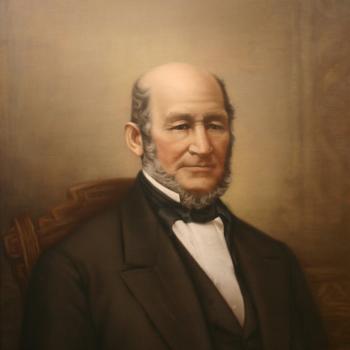This past week was about the sixth or seventh time I have presented a paper in a conference and I am actually starting to feel more comfortable with the whole process. As I have been reflecting on the conference, I thought I would share some thoughts, both as a presenter and an audience member.
1. Always have some kind of handout. Now, I prefer to give out the whole paper because (a) it is easier to follow along (especially if the audience members nod off!), (b) it can compensate for talking a bit too fast, and (c) it allows the reader/hearer to reflect further on your paper and offer you more specific feedback at a later time. The disadvantages are that it is costly and time-consuming to offer and there is a higher potential for someone stealing your work. Nevertheless, if you do not feel comfortable giving the whole paper, have some kind of outline and especially your thesis statement(s). A short bibliography is always welcome. Put your email on there as well so you can receive feedback.
2. Stay Focused – Some paper presenters tend to digress from their manuscript and do asides. It, for me, is barely tolerable once or twice, but certainly do not make it a habit. Try to stick to your guns (although jokes tend to be more welcome). These asides add more time on your paper and can get irritating (as it breaks up the coherence of your paper sometimes).
3. Pause – intentionally take a drink of water or just stop and take a breath every so often (at the end of a section) so people can mentally settle and/or catch up. Build such pauses into the timing of your paper if need be.
4. Summarize, summarize, summarize! In the writing of your paper (not in asides) summarize what you are saying and what you have said repeatedly. It may seem too repetitive to you, but it is very helpful for those who are just listening.
5. Biblical Texts – if your paper is based on a biblical passage, have a handout with the text on it in English and also Greek/Hebrew. Don’t assume your audience knows the passage by heart.
6. Don’t quote German unless you absolutely have to or unless you are presenting at SNTS. Please think of those of us that can barely read it, let alone try to recognize it by ear.
NOTES ON ANSWERING QUESTIONS
1. Don’t Backlash -some questioners have an angry tone and mean spirit in their interrogation. Don’t stoop down to their level and lash back. Try to resummarize what they have asked, but as if it were done in a more neutral way. Then answer the question. I have failed in this area where I get defensive and over-compensate by bringing up every argument I can think of to overwhelm them.
2. Answer questions concisely- this is hard, but most people don’t want to hear a long answer. Often a really long answer means either (a) you are trying to show off, (b) you are having a private conversation with the questioner publicly, which is also annoying, (c) you don’t really know the answer, or (d) you are thinking out loud and the audience members are all looking at their watches.
3. Don’t feel too proud to say ‘I don’t know’, but it is not bad to venture an idea after saying this (but briefly).
4. If the question is completely off the topic, but interests you, give a quick (30 second) answer and say, ‘for the sake of those who have more questions about the paper, catch me afterward for a longer answer’.
5. If the questioner makes a statement instead of a question (i.e., ‘I think that your ideas are…’) feel free to say, ‘Thank you for giving me something more to chew on on this topic’ and move on. Those who are just making a comment, in my opinion, often just want to tell you something and are looking for feedback. But, not always.
As I am presenting soon at SBL, I will get another chance to practice what I preach! See you in Boston!















